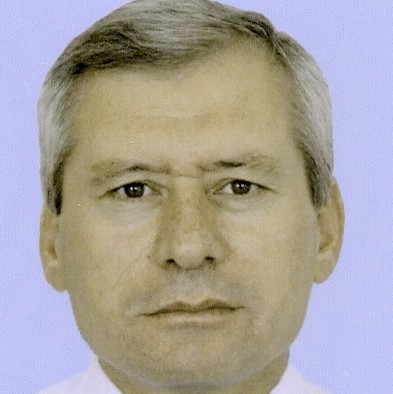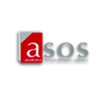Research Article
Book Review
Aim & Scope
Aims of our journal are to create a synergy among different disciplines, research methods and fields of interest by gathering various areas in the name of philology; to provide a dynamic platform for scientific studies in philology; to provide researchers convenient and unrestricted reach with open access policy.
Discours Journal of Philology covers the following fields: Linguistics, language philosophy, literature researches, literature theory, comparative literature, literary criticism, semiotics, narratology, folklore, translation studies, literature sociology and literary philosophy.
Author Guidelines
1. Title: The title should be consistent with the content. Only the first letter of the words should be capitalized. It should be 18 point, bold and centered.
2. Author name: All letters that make up the author’s first and last name must be written in capital lettters. It sholud be 12 point and bold and centered. Institutions and e-mail addresses of authors should be given in the footnote with a “*” sign.
3. Abstract: At the beginning of the verb, there should be a summary in Turkish and English consisting of at least 100 and at most 250 words expressing the short form. The papers should include "keywords" and "keywords" consisting of at least 5 words and no more than 8 words without spaces left.
4. Order: For A4 size, it should be typed in word program with "Palatino Linotype"/with 11 points and 1.2 lines. Paragraph head value should be 1 cm (except block quotes), no paragraph spacing should be left. A 2-inch margin should be left from the page edges (right, left, top and bottom). Parts that need to be emphasized in the text should be indicated in italic (not bold) or double quotes.
5. Chapter titles: All main headings are in capital letters and bold, the intermediate headings and subheadings are all bold and the first words should be written in capital letters.
6. Tables and figures: Numbers and titles for tables should be written. The figure numbers and names should be just below the figure.
7. Quotations: Direct quotes should be quoted. Quotations less than 4 lines should be quoted in the paragraph, quotes of 5 or more lines should be given in the form of independent paragraphs. Such blocks should have a space of 1,5 cm from the left and right of the citation, and should not be given a paragraph head and should be 10 pt size. The line spacing must also be 1,2 cm.
Footnotes should only be used for statements that cannot be made in the text, and the characters in this section should be arranged in 9 points.)
8. Reference: References in the text should be followed by the APA system.
References should be indicated in the form of single-letter publications (Kaplan, 1980, p. 56), in many written citations (Bloom et al., 2013, p. 35).
* If the name of the cited author is included in the text, only the publication year and page must be specified in the submission: Moretti (2004, p. 37).
* Internet sources should indicate the date of arrival of the resource. Addresses should also be given in the bibliography section. Sample: www.gunceyayinlari.com (Access 28.02.2016)
9. Sources: The bibliography should be arranged alphabetically according to the sournames of the authors at the end of the article. Sample: Tanpinar, Ahmet Hamdi (1988). Huzur. İstanbul: Dergah Publichouse.
* If the source has two manuscripts, the surname of the author who is first in the work is given first. Sample: Parlatir, İsmail and Nurullah Chetin (1996). Genç Kalemler Dergisi. Ankara: Akcag Publichouse.
* If the source has more than three articles, then the first author's information should be used and the abbreviation of the others should be used. Sample: Kaplan, Mehmet vd. (1983). Devrin Yazarlarının Kalemiyle Millî Mücadele. Ankara: Culture and Tourism Ministry.
* Large, independent work names, such as names of books and journals, should be in italics. Chapter of book, small, dependent work titles such as poetry should be written in normal but double quotes.
* If journal, encyclopedia material, book parts are used, page range information should be given at the welder.
* If it is, it must be translated, compiled, prepared, written on behalf of the editor and given after the knowledge of the work.
* If the same author has more than one work of the same date at the sources, it should be displayed as "a, b, c ...".
* If the text of the article is in English, the bibliography must also be arranged in English.
* If the thesis is used, the author's surname-name, the date the thesis was written, the title of the thesis with slanted characters, the type of thesis, the name of the city and the university. Sample: Yivli, Oktay (2005). Ahmet Muhip Dıranas’ın Şiiri. Unpublished Master’s Thesis. Eskisehir: Osmangazi University.
* Sources used on the Internet should include the author's surname-name, title, internet address, and access date.
Ethical Principles and Publication Policy
Publication Ethics
• The publication processes of Söylem Journal of Philology are based on the unbiased production and sharing of information. In the realization of scientific production, all publication stakeholders (publisher, editors, authors, referees and readers) must comply with ethical principles. In this context, the publication ethics and open access policy of the journal are in accordance with the Committee on Publication Ethics (COPE) and related policies (For example, "Code of Conduct for Journal Editors”).
• If any irregularities are detected in the article, this situation will be officially notified to the institution where the article writer works and the article will be rejected. The journal has the right to ask authors to expose the analysis results, according to reports issued by editors or referees.
Publisher's Ethical Responsibilities
• The publisher only carries out legal proceedings and does not interfere with the evaluation and publication process. The relationship between the publisher and the editorial board is based on editorial independence.
Ethical Responsibilities of the Editorial Board
• The editorial board of the journal is responsible for every article submitted to the journal. This responsibility requires making decisions independently without considering personal gain. Only purpose is to consider the public interest.
All decisions taken by the editors are independent of the publisher and other persons and organizations.
• The work done by the editorial board of our journal is as follows:
• To ensure the determination and implementation of journal policies such as publication, blind review, evaluation process, ethical principles.
• To protect the copyright of authors.
• To take precautions regarding intellectual property rights, unscientific-unethical behaviors, plagiarism, “citation gangs” during the publishing process.
• To prepare a referee guide that includes the information that the referees will need in the evaluation phase.
• To keep the records of each article and correspondence electronically for 5 years.
Ethical Responsibilities of Editor, Assistant Editors and Field Editors
• They ensure the required information of referees, authors, researchers, practitioners and readers. They try to act according to the principles of clarity in matters that require correction and explanation during the publication process.
• While making positive or negative decisions about the articles, they consider the original value of the articles, their contribution to the field, the validity and reliability of the research method, the clarity of the expression and the journal's purpose and scope.
• They apply the policies of blind review and evaluation process, keep the identity information of the referees and authors confidential, and ensure that each article is evaluated objectively and in time.
• They take into account the expertise of field editors and referees in article reviews.
• They consider whether there is a conflict of interest or a common interest between editors, referees and authors.
• They take care to keep the referee pool large and up-to-date.
• They ensure that the journal publishing processes are operated in accordance with the publication policies and guidelines.
• They communicate effectively with everyone involved in the publishing process and hold meetings at regular intervals.
• They protect the individual data of authors, referees and readers.
• They pay attention to the protection of human and animal rights in the articles. They care about documenting the express consent of the participants of the article. If there is no ethics committee approval regarding the participants of the article and if the permission is not obtained in experimental research, they reject the article.
• They take precautions against misconduct. When there are complaints of misconduct, they make an objective investigation and share their findings.
• They provide correction of errors, inconsistencies or mis-directions in the articles.
• Editors protect the intellectual property rights of the published articles and defend the rights of the journal and authors in case of violation. They take the necessary measures to ensure that the content of the published articles does not infringe the intellectual property rights of other publications. They check them for originality-similarity.
• They take into account the consistent criticism of the articles published in the journal, and give the right to reply to the authors of the criticized articles.
• They also consider the studies involving negative results.
• They examine the complaints submitted to the journal and make the necessary explanations.
Ethical Responsibilities of Referees
• During the article evaluation process of the journal, the principle of double-blind refereeing is applied, in which the authors do not know the referees. Referees cannot communicate directly with authors. Article evaluation forms and correction requests with the notes specified on the text are forwarded to the authors by the editors through the journal management system.
• Referees have the following ethical responsibilities:
• They should only agree to evaluate articles related to their speciality.
• They should make the assessment in neutrality and confidentiality. Nationality, gender, religious and political beliefs and commercial concerns should not disrupt the neutrality of the evaluation.
• When they understand that there is a conflict of interest or a common interest, they should refuse to evaluate the article and report it to the editors.
• They should make their assessments in accordance with the academic ethic and in a constructive language; they should avoid personal comments containing insults and hostility.
• They should evaluate the article in time.
Ethical Responsibilities of Authors
• The ethical responsibilities of authors are as follows:
• They should not send the articles previously published or sent to another journal to be published.
• They pay attention to the authenticity of their articles.
• They should correctly refer the sources that they use in their articles in line with ethical principles.
• The names of persons who did not contribute to the article should not be written as authors. Changing the order of authors, removing authors, adding authors for an article submitted for publication is not recommended.
• They must document the rights to use the data that they use in their articles, the permissions for research and analysis or the consent of the participants on which they conduct research.
• They should contact with the editor to inform, correct or retract when they notice an error in the evaluation and early viewing processes or electronically published article.
• They should declare that they have received ethics committee approval for the studies that require data collection by quantitative or qualitative methods such as experiments, questionnaires, scales, interviews, observation, focus group work. The ethics committee name, decision date and number should be stated on the first page of the candidate article and in the method section. They must upload the document showing the decision of the ethics committee to the system with the application of the article.
• They should present the evidences that they are paying attention to ethical principles during the data collection process in the articles. It should be stated that they comply with the research and publication ethics and copyright regulations. If the study was conducted on human subjects, it should be noted that the research was carried out in accordance with international reports and guidelines.
• Ethics committee approval is not required for review articles.
Notifying the Editor of Non-Compliance with Ethical Principles
• If an unethical situation is detected in any phase of the publishing processes, it should be reported to the following address: soylemdergi@hotmail.com
PUBLICATION POLICY
• Söylem Journal of Philology is a scientific-peer-reviewed electronic journal that is published as open access on the DergiPark platform offered by TUBITAK in four-month periods in April, August and December, every three issues per year. Special issues can be published with the decision of the editorial board.
• In the journal, original scientific studies in the fields of linguistics, philosophy of language, literary research, literary theory, comparative literature, literary criticism, semiotics, narrative science, translation studies, philosophy of literature, sociology of literature and scientific book reviews can be published.
• In order to draw attention to the studies in the fields of language, linguistics and literature research / analysis, our journal gives a “Discourse Philology Award” to the author of a study every year by the decision of the jury.
• Our journal publishes articles written in Turkish or English. English abstract is necessary for Turkish articles and Turkish abstract for English articles.
• Any responsibility regarding the content of the studies published in our journal belongs to the authors.
• Editorial board has the right not to publish the submitted works. They can make corrections in published works.
• Our journal supports the open access policy. It allows its readers to read, download, copy and distribute the published articles with the condition that it is not commercial.
• Articles should be submitted in accordance with our journal's principles and spelling rules. Studies that do not comply with publication principles are rejected by the editorial board.
• Research articles to be submitted should not exceed 25 pages including abstract, bibliography and appendices. Book reviews should not exceed 5 pages including visuals.
• A maximum of 30 original articles and 3 book introduction texts will be accepted for each issue. The quota can be increased by 10% with the permission of the editor. When the article quota is filled, new articles will not be accepted to the current issue. The article evaluation process is approximately 40 days and articles that receive positive approval from the referees and the editor will be published in the relevant issue.
Price Policy
• Free
Indexes
Citation Indexes
Other Indexes
Journal Boards
Chief Editor

Technical Editor

Fields Editors



Spelling and Language Editors






Editor Assistants




Coordinator

INTERNATIONAL EDITORIAL BOARD


National Advisory Board

Gökhan Tunç, 2002 yılında Ankara Üniversitesi, Dil ve Tarih-Coğrafya Fakültesi Türk Dili ve Edebiyatı Bölümünde lisans; 2006 yılında, Bilkent Üniversitesi Türk Edebiyatı Bölümünde yüksek lisans eğitimini tamamladı. 2011 yılında hazırladığı “Millî Mücadele’nin Türk Romanına Yansıması” adlı teziyle Ankara Üniversitesi Sosyal Bilimler Enstitüsünden doktor unvanını aldı. Adam Öykü, Atatürk Üniversitesi Türkiyat Araştırmaları Enstitüsü Dergisi, Bilig, Edebiyat Otağı, Erdem, Folklor ve Edebiyat, Hece, Karadeniz Araştırmaları, Kardeş Kalemler, Kebikeç, Millî Folklor, Şehriyar, Tübar, Turkish Studies, Türk Edebiyatı, Uluslararası Sosyal Araştırmalar, Yeni Türk Edebiyatı Araştırmaları gibi dergilerde yazıları yayımlandı. 2011 yılında Kadim Yayınlarından Çağdaş Mesnevinin Peşinde: Nâzım Hikmet’in Ferhad ile Şirin’i ve Sezai Karakoç’un Leylâ ile Mecnun’u adlı kitabı; 2018 yılında Ötüken Yayınlarından Rüzgâra Karşı Duran Şair: Etkilenme Endişesi Kavramı ve Yahya Kemal’in Türk Şiirine Etkisi ve Hece Yayınlarından Kavramlar ve Kuramlarla Modern Türk Şiiri İncelemeleri adlı kitapları yayımlandı. Hüseyin Cahit Yalçın’ın eski harflerle yayımlanan Hayâl İçinde adlı romanını bir inceleme ile birlikte yeni harflere aktardı. Ayrıca İş Bankası Kültür Yayınlarından yayımlanan Asfalt Ovalarda Yürüyen Abdal: Behçet Necatigil adlı kitabı yayına hazırladı. Anadolu Üniversitesi tarafından yayımlanan Türk Klasikleri serisinin genel yayın yönetmenliğinde bulundu. Tunç, 2003 yılında Bilkent Üniversitesi, Türk Edebiyatı Bölümünden Melih Cevdet Anday Onur Ödülü’nü; 2011 yılında yayımlanan Çağdaş Mesnevînin Peşinde: Nâzım Hikmet’in Ferhad ile Şirin’i ve Sezai Karakoç’un Leylâ ile Mecnun’u adlı kitabıyla İLESAM tarafından yılın edebî tenkit ödülünü; 2021 yılında Şiir ve Bellek: Modern Türk Şiirinde Bellek Metaforları kitabıyla Söylem Filoloji ve Mehmet H. Doğan ödülünü aldı. Hâlen Anadolu Üniversitesi Edebiyat Fakültesi Türk Dili ve Edebiyatı Bölümünde öğretim üyeliği görevini sürdürmektedir.




REFEREES










































































































This work is licensed under a Creative Commons Attribution-NonCommercial-NoDerivatives 4.0 International License.

























